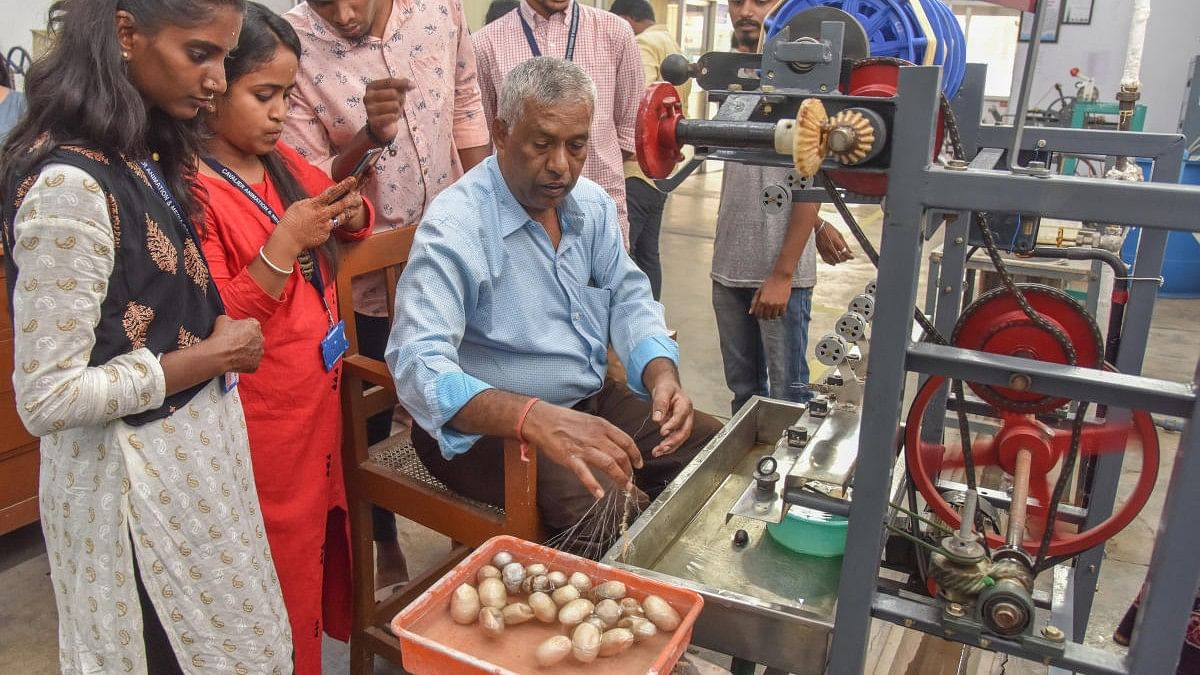
Research into the use of silk byproducts in pharmaceuticals and cosmetics is also ongoing.
Credit: DH Photo/ S K Dinesh
Bengaluru: In a bid to enhance quality assurance for silk products, the Central Silk Technological Research Institute (CSTRI) in Bengaluru is set to adopt a new purity-testing technology.
Through a collaboration with Germany-based startup Senorics, near-infrared (NIR) spectroscopy will be employed to verify the authenticity of silk for consumer protection. This advanced method will analyse the material composition of fabrics, particularly silk.
P Sivakumar, member secretary and CEO of the Central Silk Board (CSB), announced that a memorandum of understanding (MoU) with Senorics researchers will be signed within six months.
As Karnataka remains India’s largest silk producer, and with CSB celebrating its platinum jubilee this year, the project introduces a long-awaited, non-destructive alternative to traditional methods, such as burn tests and chemical analysis, which determine if the yarn is pure mulberry silk.
“Silk is a luxury product, and customers often purchase expensive fabrics without the ‘Silk Mark India’ label, raising doubts about authenticity. This new technology will reassure them (of the quality),” Sivakumar told DH.
S Periyasamy, Director of CSTRI, explained that the device can analyse the properties of materials like polyester, nylon and cotton. “Sellers can install these sensors in their stores, enabling customers to verify products. Our role is to develop the technology,” he said.
Research into the use of silk byproducts in pharmaceuticals and cosmetics is also ongoing.
"Studies have shown that silk byproducts, such as fibroin and mulberry, have anti-aging properties. As a leading silk producer, India must promote these byproducts as sustainable alternatives,” Periyasamy added.
To mark its 75th anniversary, the board will host a Seri Stakeholders Meet on Saturday at the University of Agricultural Sciences, GKVK, Bengaluru.